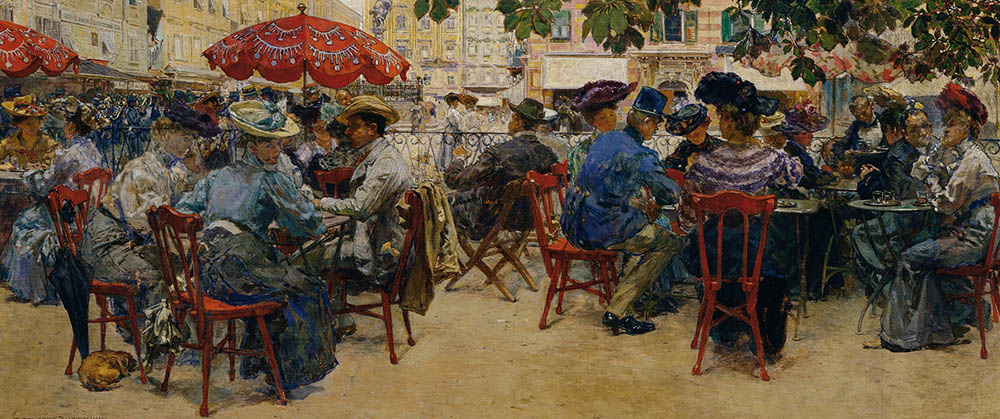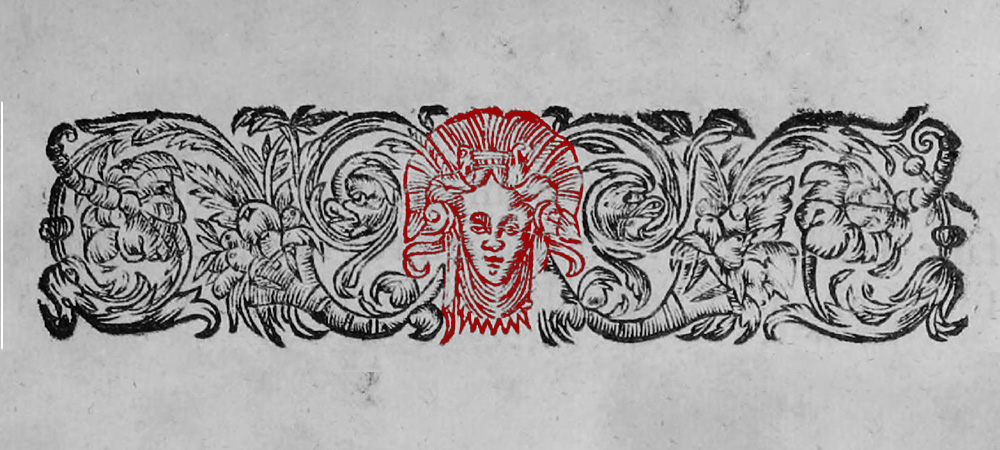The Virtue of Orderliness
Order is the path we follow, or the pattern by which we live with purpose and meaning. Above even food and shelter, we must have order. The human condition is insufferable unless we perceive a harmony, an order, in existence.
—Simone Weil
Orderliness is the first of the cultured virtues because the development of all the others presupposes an orderly way of life. The disorderly person might strike upon something, from time to time, that looks like elegance or intelligence, but such happy coincidence does not proceed from virtue because it does not proceed from deliberate cultivation.
When I taught introductory ethics classes to freshmen, I began to notice a certain uselessness in the default approach I took during my first few years. I taught them to reflect upon big, macro-level social issues or impossible-to-solve lifeboat dilemmas (because this was how it was done when I took the class myself). Sometimes the resulting conversations were insightful, but even on the best days I felt that I was failing to address the ethical concerns that were actually of pressing and immediate interest to my students. Even if they could say something intelligent about systemic injustice, how could they do anything about it if they could not manage to wake up on time, do their laundry, overcome addictions, hold a conversation with the people closest to them, or plan their finances for the next month?
The most down-to-earth text I thought to add was the Meditations of Marcus Aurelius. Somewhat to my surprise, a meaningful percentage of my students began to report to me that Aurelius and our ensuing conversations were practical in a way that no other class had been for them. They painfully desired a better life for themselves, they knew that they had issues, but no one had ever suggested to them before, in quite these terms, that they should begin by introducing order into their own soul. These conversations gave the students not only practical guidance about how to begin ordering their lives but more importantly it showed them what kind of order was desirable in the first place.
At this point, everyone knows the meme of Jordan Peterson as an somewhat peevish father figure telling us all to clean our rooms. Beyond the meme, however, we stand to learn a profound truth about human nature. Peterson is speaking to people who are in trouble, people who cannot seem to get started, and God knows that I have been there before. Peterson tells people who are stuck in such situations to start at the simplest level with the order and cleanliness of their immediate environment. Perhaps, he allows, cleaning the whole room is too much. Fine. Can you put away just the things on the table by your bed? Good. Now can you tackle the one pile of clothes by the door. By humbly beginning with the simplest things numerous moral processes begin to work. The person is now acting on rather than merely thinking about his problems. Instead, he is using his mind to practically impose order on a field of chaos. He must consider how things within the little sphere of his responsibility could be better than they are right now. He must further consider what simple actions he can do to convert the world around him from disorder to order. And the result is productive of many more future results. The room is now cleaner, if only just a little, and an orderly environment provides a basis for a healthier mind and more effective action in the future.

There is something extremely mundane about this foundational element of all culture, but there is also something excitingly cosmic. In his essay “On Fairy Stories,” J.R.R. Tolkien famously explains the concept of “subcreation.” He argues that imaginative authors act like God when they create worlds of beauty, meaning, and story. Extending Tolkien’s concept (beyond what he intended, admittedly), I want to suggest that we all engage in “subcreation” whenever we bring order to the things around us.
It might be surprising, even theologically scandalous, that God should leave us any ordering to do. If God is all wise and all powerful, shouldn’t the present arrangement of things be as good as it gets? If this were the case, however, we would be like an only child in the house of a smothering mother who does all the laundry, cooks all the food, cleans every room, and even takes care of the child’s nails and teeth. Such a house might be lovely, but the child will be a disaster. He comes into maturity precisely by learning to order things himself, at first with much help, then guidance, then supervision, before being welcomed into the adult world of responsibility.
God creates according to Logos, a Greek term with a double meaning. On the one hand, logos refers to the principle of organization within something. For example, we all learned in math class that a triangle with angles of 30, 60, and 90 degrees will have sides with a determinate ratio. This ratio, this structure or organization of the triangle, is its logos. Similarly, the layout of a house, shown in its blueprints, is the logos of the house. The logos of a maple tree is the specific organic pattern that makes a maple tree a maple tree, encoded in its DNA, governing the shape of its branches, the five points of its leaves, the blood red of those leaves in the fall, and the sweetness of its sap. We could say that all these things have a certain “logic” to them.
On the other hand, logos also refers to the principle by which conscious minds apprehend all these patterns. Hence, logos is commonly translated simply as “reason.” In this sense, we are “logical” and we practice “logic” when we consciously think through the order required for things to make sense and fit together.
While human beings never create anything entirely from nothing, we do participate in something divine whenever we bring order to ourselves and the world around us. Because we have minds we are capable of seeing the order that already exists in the very nature of things, but we are also capable of seeing the order that could exist but doesn’t yet. As embodied moral persons in the world, our task is not simply to understand logos but to implement it. We bring order to things by applying logos. This is a solemn responsibility, but it’s also pretty fun. We have the divine privilege to imagine, to design, to sort, to sculpt. What kid doesn’t like Legos?
The person with the virtue of orderliness, therefore, has gone through several phases. First, he has apprehended the value of order and seen how much better order is than disorder. Second, he has responded to this value by attempting, as best he can, to understand the already given order of his own being and the being of the things around him. Third, he has also responded to the value of order by attempting to discern moments in the sphere of his immediate responsibility that can be brought closer to the way they should be by the intervention of his own agency. Finally, through the constant, repeated application of his intelligence to concrete action he has formed a thoroughly ingrained disposition of character.
As with other virtues, the best disposition will strike a mean without falling into extremes. We have all met the kind of person who imposes a tyrannical order on his household, his business, his schedule, and his clothing. Everything must be in its neat little box, every surface clean, every action controlled. Such a pathological personality often comes from an obsessive need for control. Pushed to its farthest, this psychosis creates a world that is inhuman, even demonic, as we see for instance in the buildings of Le Corbusier. The virtue of orderliness, by contrast, must combine with other virtues, such as the wisdom to recognize that there is more order already present in nature than what can be produced by right angles or the humility to accept and work around one’s unsolvable imperfections.
The orderly person will care about his hygiene and personal appearance without becoming a dandy. He will keep a clean house, without falling for the fad of minimalism. He will responsibly handle his to-do lists and his calendar, but can also handle interruptions and unexpected obstacles. He keeps a routine in his exercise, his diet, his sleep, his commitments to family and friends, but he can also allow this routine to slip or flex when necessary. Most importantly, he does not play God. He does not imagine that the world or his own being is here for him to impose his arbitrary, tyrannical will. Rather, he plays along with God. He seeks to organize his little area of responsibility along the lines already present in a world that has been given to him as a gift.
